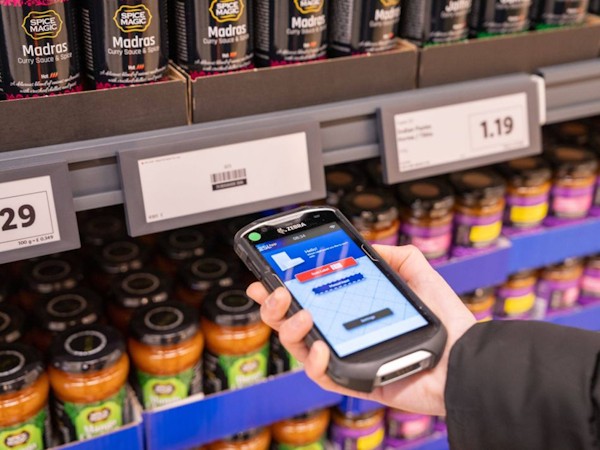Lidl GB has announced it will make the switch from paper pricing tags to Electronic Shelf Labels (ESL) following the success of trials in over 35 stores.
 The discounter noted that the move, which is set to be completed by the end of this year, will save over 206 tonnes of carbon annually through paper and packaging reductions, while ink usage will also be minimised.
The discounter noted that the move, which is set to be completed by the end of this year, will save over 206 tonnes of carbon annually through paper and packaging reductions, while ink usage will also be minimised.
During trials, which began in September 2022, over two-thirds of shoppers surveyed said they didn’t notice the change. Lidl stated that this demonstrated how the technology can help bolster its store operations, without impacting the experience of shoppers.
The discounter highlighted that the tech removes the need to manually check and update paper price tags, allowing its staff to focus on customer service and restocking shelves.
Isaac Ekpenyong, Director of Sales Organisation at Lidl GB, commented: “As a discounter, sustainability and efficiency run deep in our DNA. Making changes to how we operate, no matter how big or small, allow us to enhance the overall experience for those shopping with us. In this particular case, we’re empowering colleagues by freeing up more of their time to dedicate to tasks that directly benefit our customers.
“But our transition to Electronic Shelf Labels is more than that; it is another step we are taking to reduce our impact on the environment by curbing paper and ink consumption.”
Tesco, Sainsbury’s, Asda and Morrisons have all trialled ESLs, but none have fully adopted the technology. Aldi has been trialling ESLs in a number of stores over the last couple of years and is starting to roll them out more widely.
Smaller operators such as Scotmid and Southern Co-op recently completed the rollout of ESLs across their estates of convenience stores.
NAM Implications:
- Key is speed and accuracy in implementing price changes…
- …without diluting shoppers’ in-store experience.
- (only query is why rivals have not completed roll-outs to-date in the light of inevitability)



